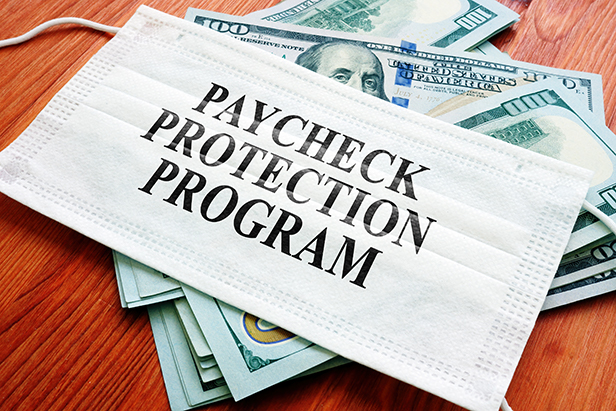News September 02, 2020
Dems Allege Billions in PPP ‘Fraud, Waste, Abuse’
Republicans countered that fraud has been kept to a minimum and that the program has saved 51 million jobs, keeping small businesses afloat.
Democrats on a House subcommittee overseeing the coronavirus crisis response released a report saying that it’s possible that billions of dollars from the Paycheck Protection Program (PPP) were diverted to “fraud, waste and abuse.” 
“The analysis shows PPP helped millions of small businesses and non-profit organizations stay afloat during the coronavirus crisis, but a lack of oversight and accountability from the Treasury Department and Small Business Administration (SBA) may have led to billions of dollars being diverted to fraud, waste, and abuse, rather than reaching small businesses truly in need,” the report read.
Democrats on the Select Subcommittee on the Coronavirus Crisis called out a number of examples of potential issues with the program, which is administered by the SBA and Treasury. They include allegations that:
- Over $1 billion in loans went to companies that received multiple loans.
- More than 600 loans totaling over $96 million went to companies excluded from doing business with the government.
- More than 350 loans worth $195 million went to government contractors with significant performance and integrity issues.
- The subcommittee staff compared the federal government’s System for Award Management (SAM) database against the information companies used to obtain PPP loans to identify red flags, such as mismatched addresses. These flags implicated more than 11,000 borrowers and $2.98 billion in PPP loans.
- PPP loan applications were approved despite incomplete or missing identifying information on the loan applications, including missing names and addresses.
Now, Democrats want the PPP to have more oversight. They’re calling for the Treasury and SBA to tighten controls on loan forgiveness, implement a stronger audit plan and cooperate more with watchdogs like Congress and inspectors general.
“Taxpayers should not have to choose between quickly getting aid to those who need it and wasting federal funds, and there are simple steps that could have been taken to improve oversight and reduce fraud,” said Rep. James Clyburn, a Democrat from South Carolina, in his opening statements at a subcommittee hearing on Sept. 1.
In a separate report, Republicans on the subcommittee countered that fraud was kept to a minimum; the SBA has reportedly dispersed 5.2 million PPP loans totaling $525 billion so far. Further, Republicans assert that the PPP saved 51 million jobs.
“SBA and our nation’s banks worked tirelessly to provide over $342 billion in loans in 14 days,” Republicans said in their report. “Behind the scenes, SBA and Treasury worked together to quickly get funds to more than 84% of the country’s small businesses, with minimal fraud.”
Trump administration officials, including Treasury Secretary Steven Mnuchin, and other Republicans have acknowledged that there were some problems with the PPP, but have explained that was to be expected given the mad dash to roll the program out to save businesses and jobs.
“Small Business Administration and Department of Treasury officials, and their counterparts at financial institutions, worked around the clock to stand up and execute the PPP,” Republicans wrote in their report. “Technical glitches with SBA’s E-Tran portal, which was receiving an unprecedented volume of loan applications, [were] resolved within a matter of days. SBA also provided clarifying guidance on certain aspects of the program to provide more information to applicants, lenders, and Congress. Their efforts may have prevented an apocalyptic scenario for American small businesses.”
Mnuchin also noted that $30 billion was returned to the program by companies that should not have initially received those loans. While there have been indications that the Trump administration wouldn’t audit loans of less than $2 million, Mnuchin said loans for less than that amount could be scrutinized as well.
There’s $130 billion left in the PPP, a forgivable loan program from the federal government designed to provide a direct incentive for small businesses to keep their workers on the payroll during the economic upheaval of the coronavirus pandemic. Authorities stopped accepting new applications for the program on Aug. 8. There’s bipartisan support for restarting the program, but disagreement over how to handle another stimulus bill has prevented progress on PPP.
